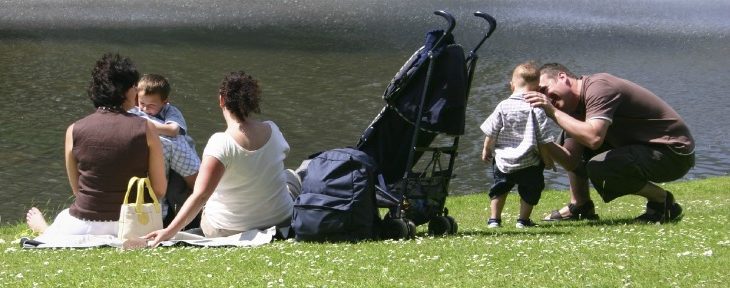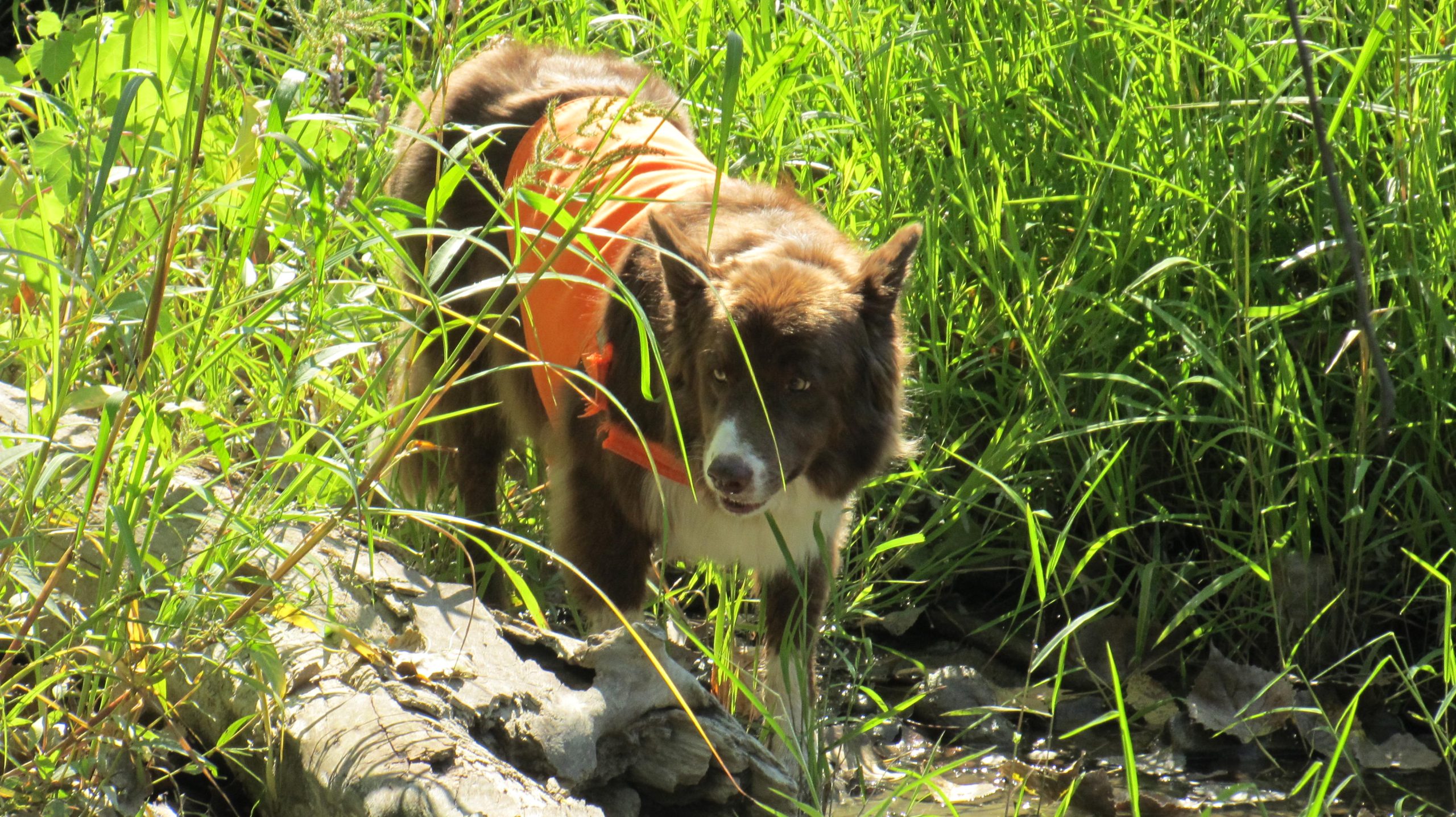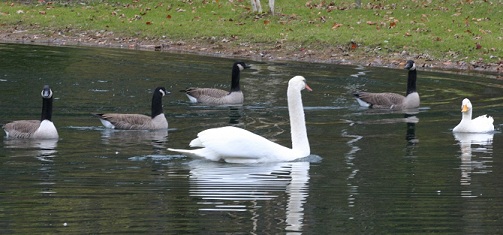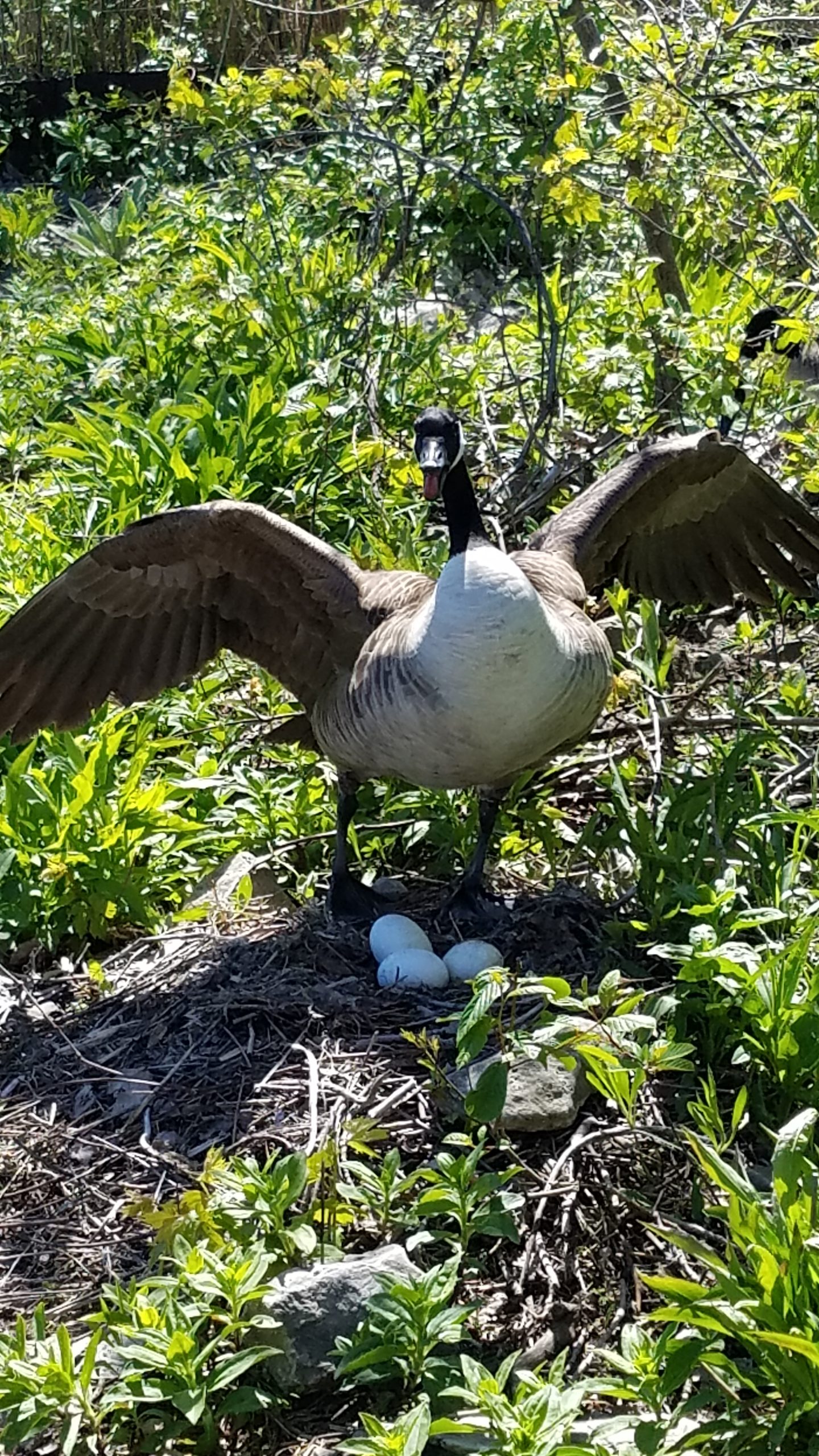
The Greatest Act of Kindness and the Simplest Goose Deterrent
Feeding geese will only attract more geese, and more droppings. But it is hard to argue when people enjoy feeding birds, especially the Canada goose. Many organizations like the Humane Society and the Audubon Society promote proper feeding of beloved backyard songbirds. People who love watching geese and ducks at local ponds might think they are being kind by dropping off food for the resident waterfowl.
Feeding bread to waterfowl is NOT kind to the Canada goose or to your neighborhood.
Bread and similar leftovers (crackers, pastries, popcorn) are easy for people to grab for a quick trip to the park, but are very hard on the geese. In fact, a diet composed of white bread can cause a bone disorder known as “angel wing” in young birds. One or both wrist joints fail to develop properly, and the affected wings will not lie flat against a bird’s body. The disorder is also known as “airplane wing.” Waterfowl with this condition cannot fly.
Animal lover and Ohio Geese Control dog handler Brianna C. often sees geese with this condition at client properties in Toledo. “We care about the well-being of all waterfowl because we are a humane service. It’s painful to watch sometimes when people are throwing bread for the geese. They gobble it down and it’s not good for them.”
Feeding wild canada geese leads to other environmental problems. Canada geese, like all waterfowl, depend on an extremely diverse diet to meet their nutritional needs. They browse in varied environments and nibble at grass, insects, larvae, small mollusks, and aquatic plants. Regular feeding by well-meaning visitors causes geese to congregate and then defecate in the same place where they eat, allowing diseases to spread and affecting water quality.
So if you know someone who’s feeding waterfowl with bread or crackers or other leftovers, see if you can convince them to stop. That’s a true act of kindness.
If geese are preventing you from enjoying the outdoors, let us know and we will kindly offer to help out. And be sure to read about our “No Harm, No Fowl” policy.

The Best Coyote Decoy… a Border Collie
We constantly get asked about those fake coyotes, and if the decoy actually works to get rid of geese. And our answer is yes and no. The purpose of the […]
Read More
Do Swans Help Get Rid of Geese?
If a picture were to tell a thousand words, then the answer is obviously no. Many properties place one or two swans in their lake in hopes that it […]
Read More
Beware, it’s Mating Season for Geese
It’s time to start being aware of your surroundings and not to walk absent-mindedly too close to Canada geese this spring. February is when geese will start pairing up […]
Read More